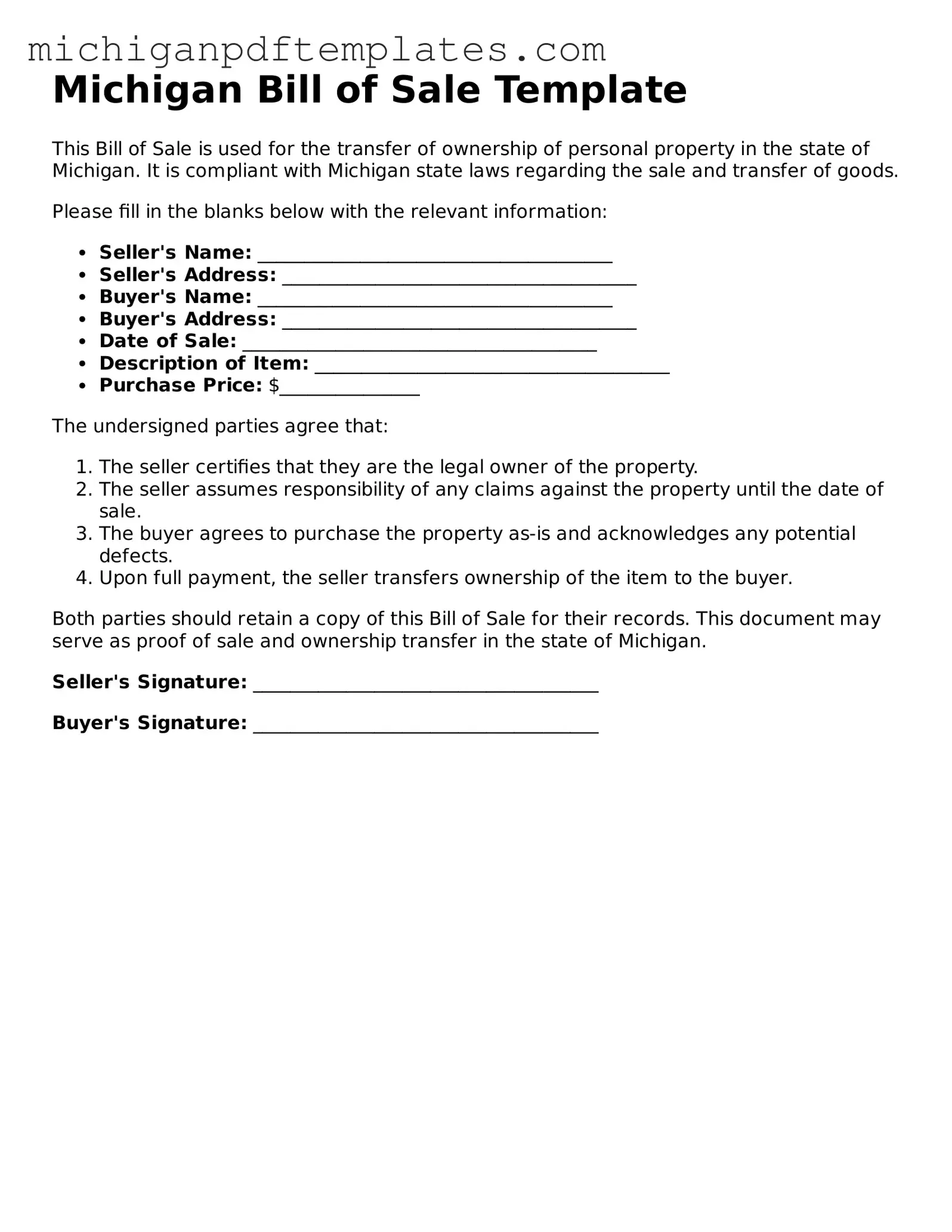Legal Michigan Bill of Sale Template
A Michigan Bill of Sale form is a legal document that records the transfer of ownership of personal property from one party to another. This form serves as proof of the transaction and outlines essential details such as the buyer, seller, and item description. To ensure a smooth transfer, consider filling out the form by clicking the button below.
Get Your Form Now

Legal Michigan Bill of Sale Template
Get Your Form Now

Get Your Form Now
or
▼ PDF Form
Finish this form quickly and move on
Fill in and complete Bill of Sale online quickly.